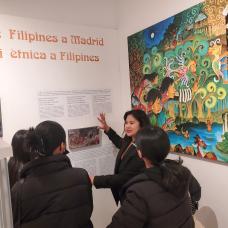Histoire Naturelle des Humanités Préhistoriques

L’UMR 7194 - Histoire naturelle des humanités préhistoriques - a pour objectif l’étude de l’évolution biologique et comportementale des hominines sur le temps long, en replaçant celles-ci dans leur contexte chronologique, environnemental et climatique sur différentes zones géographiques.
[certaines sections du site sont en cours de mise à jour]

Entre sciences humaines et sociales et sciences de la Terre et de la vie, l’UMR 7194 HNHP se caractérise par une approche naturaliste de la préhistoire sur le temps long, depuis l’apparition des premiers outils. Pluridisciplinaire et s’appuyant sur des plateaux techniques performants, elle privilégie une approche globale, patrimoniale et comparative, des sites étudiés sur de très nombreuses régions du monde, de l’Asie du Sud-Est à l’Europe, mais également en Afrique et en Amérique du Sud.
Musée de l’Homme
Muséum national d’Histoire naturelle
17, place du Trocadéro
75116 Paris
FRANCE
Institut de Paléontologie Humaine
1 rue René Panhard
75013 Paris
FRANCE
Campus de l’UPVD
Université de Perpignan
52 avenue Paul Alduy
66 860 Perpignan
FRANCE
EPCC de Tautavel (Pyrénées-Orientales)
CNRS Centre Européen de Recherches Préhistoriques de Tautavel
Avenue Léon Jean Grégory
66720 Tautavel
FRANCE








